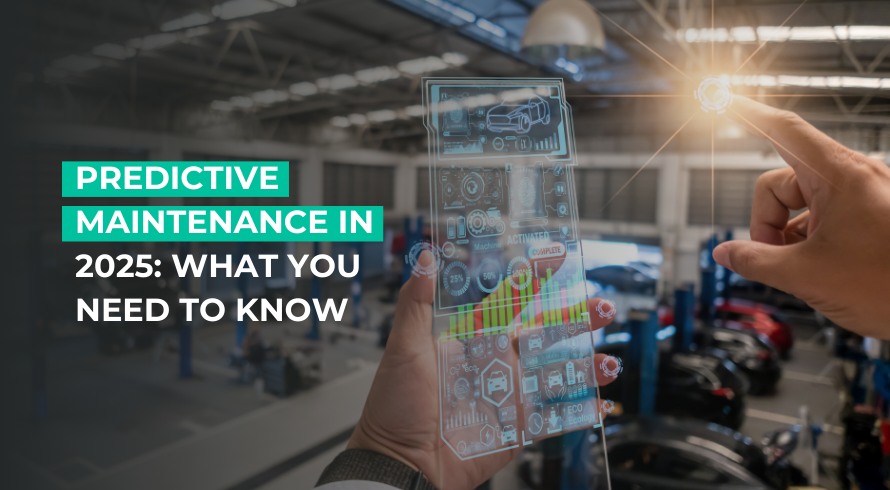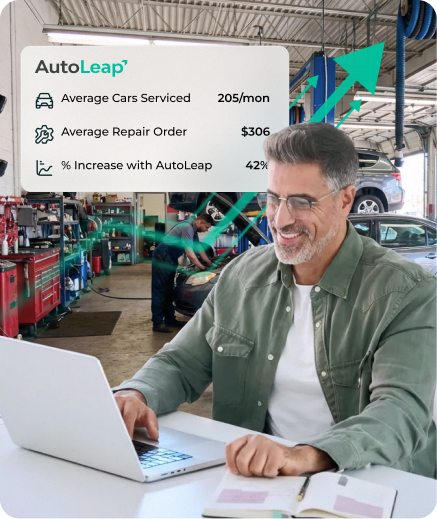Remember the times when your car would just break down out of nowhere? Or a costly repair came up unexpectedly and toppled over your monthly budget and disrupted operations?
This type of situation is very easily avoided with predictive maintenance (PdM). Predictive maintenance uses data analytics, machine learning, and sensor technology to keep track of a vehicle’s condition in real-time. If you’re still waiting for scheduled maintenance, you might face unexpected costs and disruptions to your operations. It’s easier now to use data and insights from a vehicle’s performance to predict when a part will fail.
The latest smart and electric vehicles already come with predictive maintenance systems preset. Even fleet vehicles like trucks and vans use PdM to avoid any unexpected breakdowns that would slow down operations. For example, sensors track brake wear and even engine temperature, so any potential issues are flagged well in time.
Let’s dive right in on why PdM is the next big step for auto shops and vehicle owners.
Benefits of predictive maintenance for automotive maintenance
It’s clear how technology helps us go above and beyond in preparing for unexpected circumstances. PdM also offers auto shop owners, vehicle owners, and fleet managers many advantages that help them run operations smoothly. Let’s see how:
How predictive maintenance systems help auto repair shops
Faster and smoother processes
With predictive maintenance, auto repair shops know what needs to be repaired in advance. This gives them the time to get the necessary parts and make other arrangements. For instance, if they want to schedule technicians or block shop space for particular repair work, they can do that.
Loyal customers
You can become a proactive service provider by offering predictive maintenance services. This is all a part of the customer experience your shop can give to your customers. It can help you build a stronger relationship with your customers, gain their trust, and turn them into loyal customers over time.
Higher ticket average
If customers are opting for predictive maintenance, they are also likely to book other services with it. They are already anticipating necessary repairs, so vehicle owners and fleet managers can schedule multiple maintenance services together. This saves them multiple visits to the auto shop, and also gets you a higher ticket average. It’s a win-win for both.
Data-driven work
With predictive maintenance, you reduce guesswork. Your technicians know exactly what repair is needed and what the problem is. They know exactly when it’s needed. So everything can be prescheduled, which saves your technicians a lot of time that can be spent on other repairs. They also won’t have to spend a lot of time identifying the problem, hence saving time.
Competitive edge
Offering a predictive maintenance program at your auto shop also gives you a competitive edge over your competitors. The auto repair market is already saturated and there are only a few ways you can stand out. This can be a great way to do that and make your shop more successful in the long run.
How does predictive maintenance benefit vehicle owners and fleet managers
Lesser vehicle breakdowns
With a predictive maintenance system in place, vehicle owners and fleet managers get alerts. Issues are checked and dealt with before they become critical. This removes any unexpected on-road failures or vehicle downtimes.
Reduced maintenance costs
Fleet managers and vehicle owners are able to get to the root cause before any major breakdowns. This helps them reduce maintenance costs as repairs are done before any costly damage.
Improved vehicle uptime
For fleets that are running operations for business, regular PdM helps them stay road-ready. No unexpected breakdowns means they won’t be out of service. This helps businesses run smoothly.
Better resale value and increased lifespan
The vehicles retain more value when owners schedule repairs and replacements in advance and have a documented history of consistent care. Plus, the vehicle’s life span increases when any potential issues are identified and addressed before a major breakdown.
Boosts fuel efficiency
Predictive maintenance programs can help vehicle/fleet owners save fuel and reduce operating costs. For example, if the engine oil is low, it can cause friction and strain on the engine. But with PdM, vehicle owners will know in advance of low engine oil. Or if the wheels are misaligned, it will consume more fuel, and trucks will have to work harder. PdM can help avoid this.
Lastly, when a vehicle is continuously monitored, drivers also feel relaxed. They can see the vehicle’s health, which means they won’t run into any unforeseen issues, costs, or delays.
Latest predictive maintenance technologies in the auto industry
With electric and smart vehicles dominating the market, there is an increased demand for PdM technologies.
- Telematics monitors vehicles with GPS technology and OBD II to collect vehicle health data. It tracks speeding and idling, fault codes, fuel use, tire pressures, etc.
- Digital twin technology integrated with the Internet of Things (IoT) is used to create a digital representation of physical assets. This represents the functionalities, condition, and health. These simulate the behaviour of actual vehicles and age with them. This gives a detailed health diagnostic of the vehicle.
- Vehicle sensor data and ML algorithms analyze historical and real-time data to predict when a component will fail. Intuceo provides these solutions to OEMs and dealers, which help them reduce downtime and costs.
- Predictive maintenance is also integrated with Over-the-Air (OTA) updates. This uses ML to predict breakdowns and tells drivers when to go for timely checks.
- Infosys also uses AI and ML optimization algorithms to predict failures in fleet vehicles. This helps fleet managers improve their fleet’s efficiency and reduce any maintenance costs.
- Cloud-based solutions track the vehicle components and predict failures or upcoming service needs based on predictive maintenance.
- Vehicle health monitoring apps have also gained steam. These give real-time alerts to vehicle owners with Bluetooth sensors. Questar’s Vehicle Health Management (VHM) platform gives early warnings for any malfunctions in vehicles. This reduces fuel consumption and spare parts costs for fleet operators.
- Some brands like Tesla, BMW, and Ford etc have cloud-based predictive maintenance solutions in their vehicles so owners have a built-in health monitoring system.
Challenges of implementing PdM
There are many challenges to implementing PdM, which might discourage many auto shops. So let’s answer a few common questions that can help clear things up:
1. What data points to consider?
With so many data points and metrics available, technicians have to identify the most valuable data. This is often the most challenging part. Whether to look at fuel consumption, maintenance schedules or compliance data, or all of it. Auto shops must be able to manage and interpret the huge amount of data. If they don’t have the right systems in place, it will be overwhelming for the technicians.
2. Do technicians have the right training and resources?
Your technicians need training and resources to work with the predictive maintenance programs. They need to learn how to interpret the data and use it to carry out repair work and troubleshooting. Not just that, vehicle owners and fleet managers also need to have a good understanding of how it works, how to monitor it, and respond to the alerts so they can bring their vehicles in for timely repairs.
3. Is your auto shop ready for the upgrade?
Your auto shop will need the right tools and equipment to implement the predictive maintenance systems. This also depends on the type of customers you work with most often. Is it fleets or individual vehicle owners? It’s good to be ready with the right technology based on the customers you’re servicing most. Invest in an auto repair shop software that can help your auto shop keep up with changing times.
4. What is the right time to use PdM?
When will you use predictive maintenance over preventative maintenance? Predictive maintenance gives data-backed insights into your vehicle’s health. Preventive maintenance is done at fixed intervals. If predictive maintenance costs are too high, preventative maintenance is a good option. As an auto shop owner, knowing what to suggest to your customers can help build trust.
5. Is the data secure?
Who owns the vehicle data? Is it the car owners or any other third-party platform? The security and privacy of the data are a huge concern. For instance, Ford gives access to third-party businesses access to the vehicle data, with the customer’s consent. This is then used to work on other products and services, such as usage-based insurance.
6. Can it be integrated with existing systems?
Auto repair shops are still using traditional ways of keeping records or using old and outdated tools. These will not integrate with the predictive maintenance programs. Invest in updated tools at your auto shop so you can provide these services to your customers.
7. What is the cost of implementing PdM?
This is a discouraging factor for many smaller shops. The sensors, software, and even the training come at a cost that they might not be able to incur. On the other hand, it can be a hindrance for fleet managers.
Wrapping up
Regardless of these challenges, PdM is the future. Reactive auto care is a thing of the past. The auto industry has evolved at record speed, and now it’s time for data-backed, predictive maintenance. For auto shops, it’s a great way to build additional revenue streams, provide better and faster customer service. For vehicle owners and fleet managers, PdM gives them a lot more control over the vehicle. Plus, it’s a great way to ensure the vehicle faces fewer breakdowns, and there is a reduced operating cost. Naturally, PdM is the next step in modern vehicle care.









